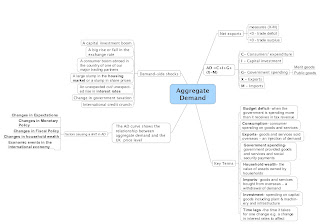Today I'm going to talk about two examples of negative externalities, which are, actually, the most wide-spread ones.
1. Obesity
You may think that if people suffer from obesity - it's their own life.
So why is it considered as a negative externality?
In fact, obesity now became a serious problem not only for people themselves, but for the whole nation.
According to BBC News, in England almost two-thirds of adults and a third of children are either overweight or obese.
It has a great impact on social services, for instance, government has to invest money in reconstructing school gyms and canteens, so that it is suitable for overweight people.
And, of course, that affect taxpayers, which are to cover the costs of all these government actions.
What are the ways of reduction people's obesity? It is obvious: advretising heathy products and healthy lifestyle, government subsidies for healthy goods producers in order to make the price for this goods lower than the price for high fat goods.
2. Smoking
'Smoking kills' - that is what is written on each pack of сigarettes. Government is also going to take some actions aganist smoking such as:
1. Banning tobacco vending machines
2. Restricting the display of tobacco products in shops ( which is already done in Canada, but
didn't affect the consumption of cigarettes).
3. Add an 'anti-smoking' picture (for example, a photography of smoker's lungs) to each pack of cigarettes.
But will that really stop people from smoking?
I guess it will reduce cigarette consumption to some extent, but won't solve the problem entirely.
However, the cost of cigarette pack may have an influence on people smoking, especially young people.
Let's compare Russia, where a cigarette pack costs no more than 2 dollars, and UK, with 10 dollars for a pack.
60% of men and 30% women smoke in Russia aganist 26% and 23% in UK.
But , on the other hand, that it is not only high prices that affect tobacco consumption, but also national habits and the way children are brought up in both countries.
Talking about impact on people's material life - the situation is similar to the first one (obesity) - tax paid by people is about 9bn pounds each year - a substantial amount of money!


